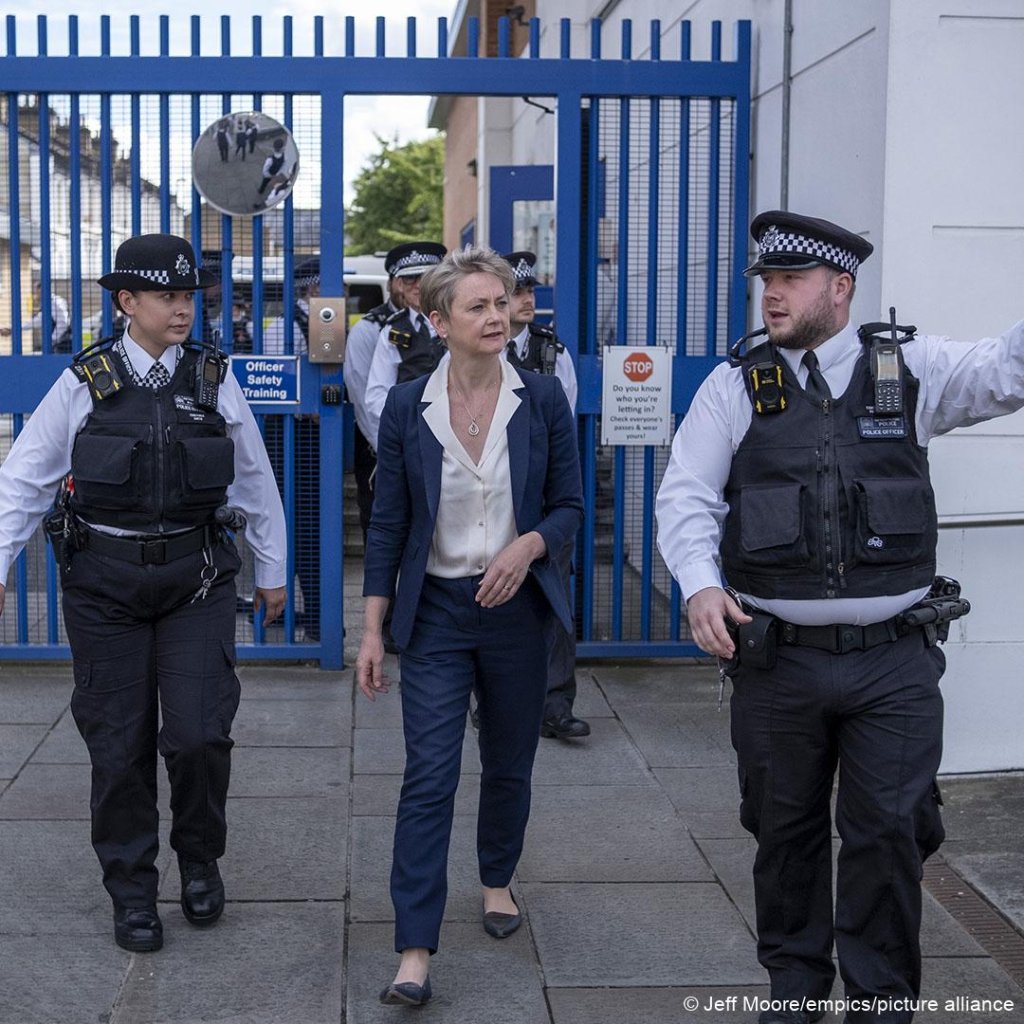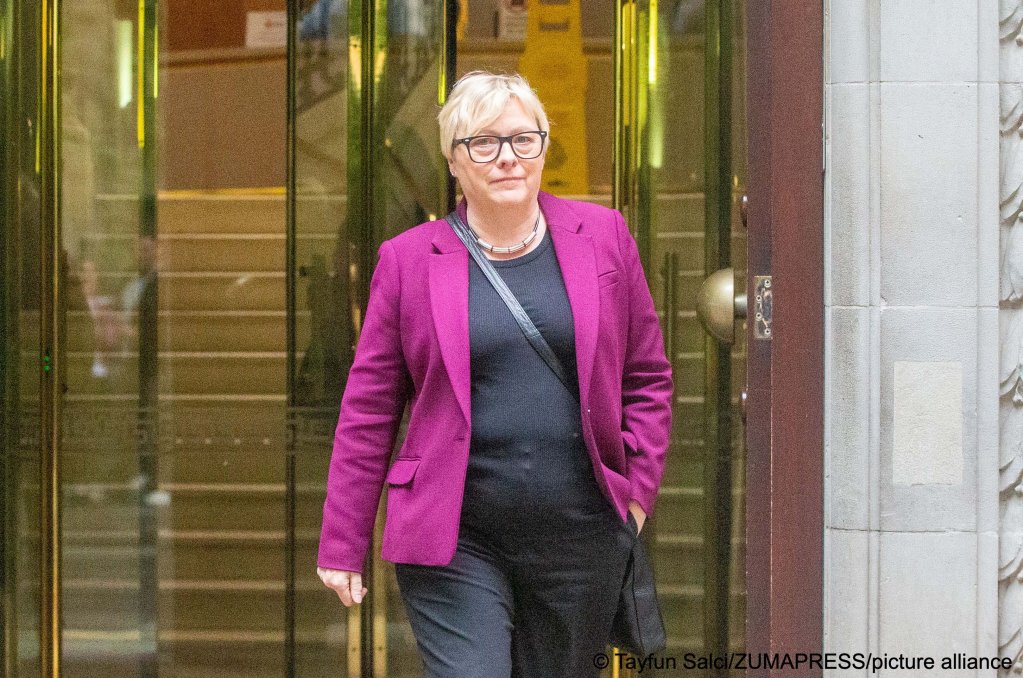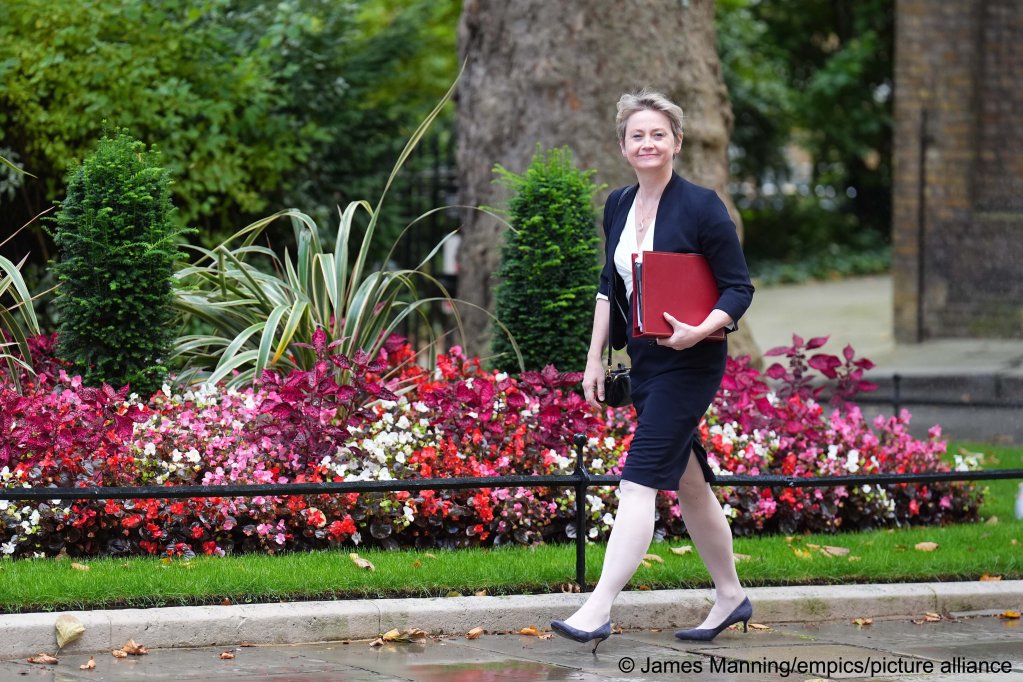The British government has announced an increase in funding to crack down on people smuggling networks. Home Secretary Yvette Cooper said her government would inject 75 million pounds to improve the capabilities of the UK's Border Security Command.
"Criminal gangs are getting away with undermining our border security and putting lives at risk," explained Britain’s Home Secretary (Interior Minister) Yvette Cooper. The 75 million pound cash injection (about 89 million euros), would help the government increase the number of border security officers on duty.
Cooper told journalists that there will be a "major overhaul" of the Border Security command, including an "upgrade in law enforcement against smugglers and trafficking gangs."
The British government hopes to use "state-of-the-art technology and enhanced intelligence capabilities" to ensure that they use "every tool at our disposal to dismantle this vile trade." Moreover, Cooper said that the number of British police officers stationed with Europe’s police and crime agency Europol would be increased by 50 percent.
Also read: UK's Starmer 'interested' in learning from Italy about migration solutions
Rwanda money redirected
Some of the money for this injection of cash will come from a pot set aside by the previous government to pay for the now-scrapped Rwanda scheme, reports dpa. The National Crime Agency will receive an extra 100 specialist investigators, which the UK government hopes will increase the likelihood of prosecutions of those suspected of people smuggling.

The Director-General of the NCA Rob Jones said he "welcomes this funding, which will allow us to improve and extend our technology, data exploitation and capacity-building both internationally and in the UK."
Jones said his crime agency was already leading around 70 investigations into smuggling gangs and individuals suspected of smuggling.
Also read: Eight die in attempted Channel crossing
'Stop human trafficking gangs in their tracks'
Stephen Parkinson, Director of Public Prosecutions, said that his CPS team would also bring "significant expertise to the new unit to help stop human trafficking gangs in their tracks." Britain’s new Prime Minister Sir Keir Starmer used to be Director of Public Prosecutions under the last Labour government before he re-took power from the Conservatives.
In a government press release, Cooper promised an "autumn crime crackdown," saying the government would use "cover cameras" and monitoring technology to enhance evidence collection and speed up investigations, making the likelihood of prosecutions more successful.
The new Border Security Command unit will be led by Commander Martin Hewitt, and is expected to bring together the expertise of various government agencies. The current government, like its predecessors, has also promised cooperation with their French counterparts, as well as "intensifying efforts in transit countries to prevent small boat equipment reaching the French coast."
Cooperation with European partners
Britain’s latest announcement comes shortly after the UK’s Prime Minister met his counterpart Giorgia Meloni in Italy to learn more about the apparent reduction in migrant arrival numbers in Italy this year, which dropped by more than 60 percent compared to last year. However, in the first year after taking power, 2022-23, the Italian government saw a huge increase in the number of arrivals, almost doubling the number of arrivals compared to the preceding years. This recent decrease could be viewed more as a return to a stable base rate rather than a drastic shift.

Britain’s Immigration Minister Dame Angela Eagle is attending a meeting in Berlin on Tuesday (September 17) to discuss strengthening border security, and tackling organized crime groups, as well as combatting violence against women and girls across the Western Balkans region.
Many of the migrants turning up on UK shores, or attempting to cross the Channel, acknowledged the UK government, traveled the Balkan route towards Europe before making their way west towards the French coast.
While the current British government uses slightly different language from its predecessor, the aim to reduce the number of migrants crossing the Channel in small boats remains the same.
Also read: UK and Germany cooperate to curb irregular migration
UK government should 'think outside the box'
Derrick Wyatt, an Emeritus professor of law at Oxford University, thinks it is about time that Starmer’s government takes a different approach. In an article for Byline Times, published on September 12, Professor Wyatt challenges the government to "think outside the box," and create a "cross-Channel safe route for asylum seekers."
This, writes Wyatt, is the real way to smash the people smuggling gangs. Wyatt acknowledges that Starmer ruled out opening more safe routes when in opposition and the Prime Minister confirmed that stance in Italy on Monday.
Wyatt proposes that the UK should offer a "combined asylum/work visa route, alongside priority asylum visas." In his article, he posits that there could be a capped number of 10,000 visas for one year. That is fewer than half the number who have already crossed the Channel since the beginning of 2024.

In Wyatt’s view, opening this route would not increase overall UK immigration. Instead of having separate routes for visas and asylum seekers, asylum seekers would be included within the overall immigration visa caps.
Also read: Crossing from the UK to France, an unusual but growing trend
Work and asylum combined?
Wyatt argues that granting asylum seekers work visas would allow them to contribute to the UK economy immediately. He sees this as a positive step, as many asylum seekers are not only fleeing persecution or war but also seeking "economic betterment."
Wyatt believes that "if UK policy recognized the economic ambitions of asylum seekers and allowed some to enter the UK both as workers and as refugees, that would save those concerned from the clutches of criminal gangs and help to torpedo the traffickers’s business model."
If a free visa and a safe route were available, thousands of asylum seekers might try and apply for that instead of paying extortionate prices to the people smugglers to enter an overcrowded boat, Wyatt argues. Moreover, because the asylum seekers would be working, they would also save the UK taxpayer from subsidizing their accommodation and welfare support, which is costing the UK millions if not billions of pounds a year.
Applications at a center in France
Wyatt suggests that applications for these combined work and asylum visas could be made at UK-staffed centers in France, and that the combined visas could be modeled on the skilled worker visa but extended to unskilled jobs in sectors that need workers, such as agriculture, where the UK has faced labor shortages since leaving the EU.

This would allow the language requirements to be lowered as well. Wyatt points out that some jobs do not require the same English language skills as are needed for a skilled work visa. He suggests that by working, paying taxes, and integrating into UK society, asylum seekers would naturally develop their language skills over time.
For those unable to qualify for work, such as unaccompanied minors, Wyatt proposes a second category of priority asylum visas. These people would be provisionally recognized as refugees. Unaccompanied children would be escorted to the UK as soon as their applications were granted, thus avoiding the potential that they run away to join gangs who paid for their passage across the Channel.
The only thing not addressed in Wyatt's article, however, is what would happen to those who do not obtain a visa, if say these visas were capped at 10,000 per year. What would they do then? Would they turn to smuggling gangs, or stay in France longer in the hope of making the cut the following year?
With dpa
